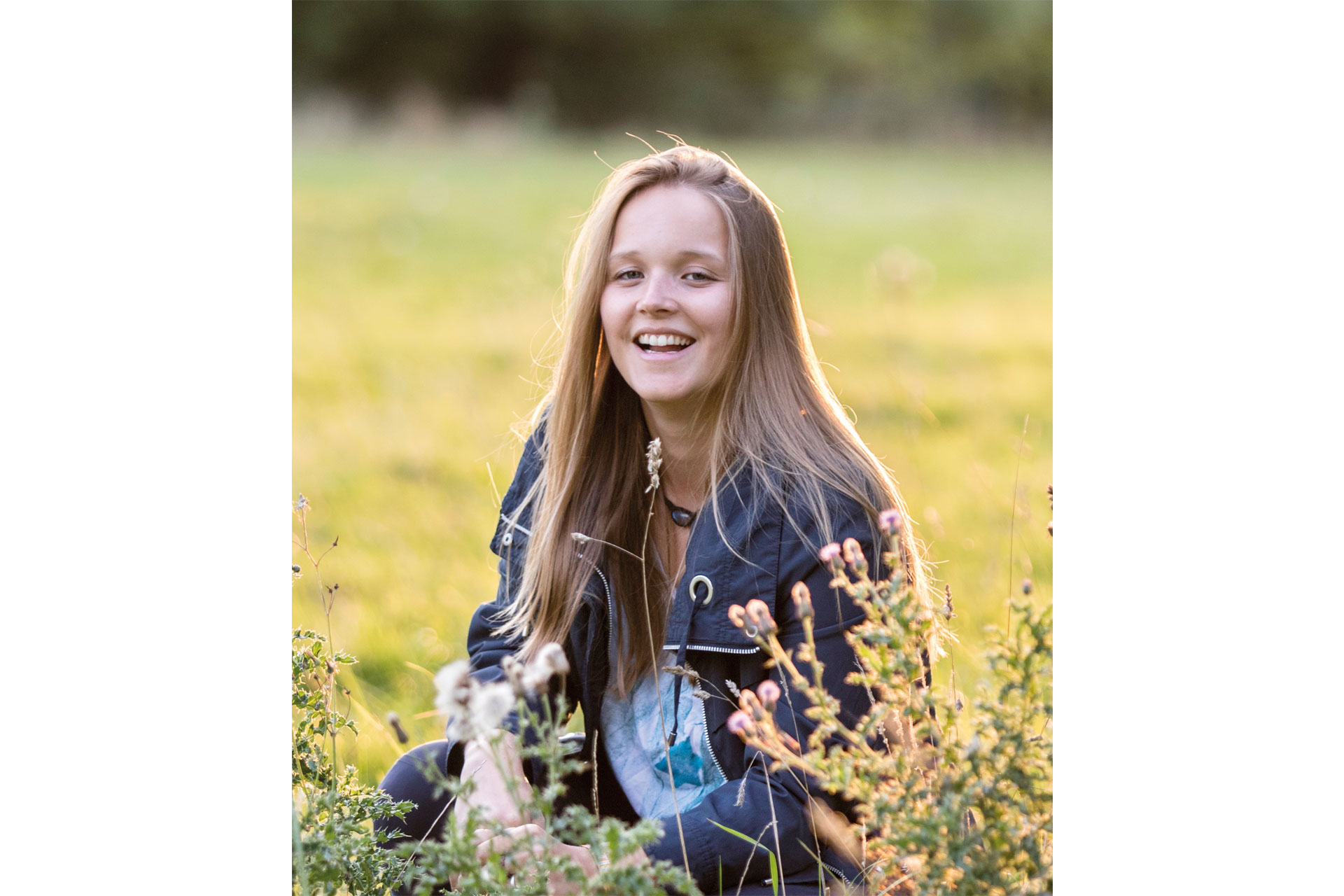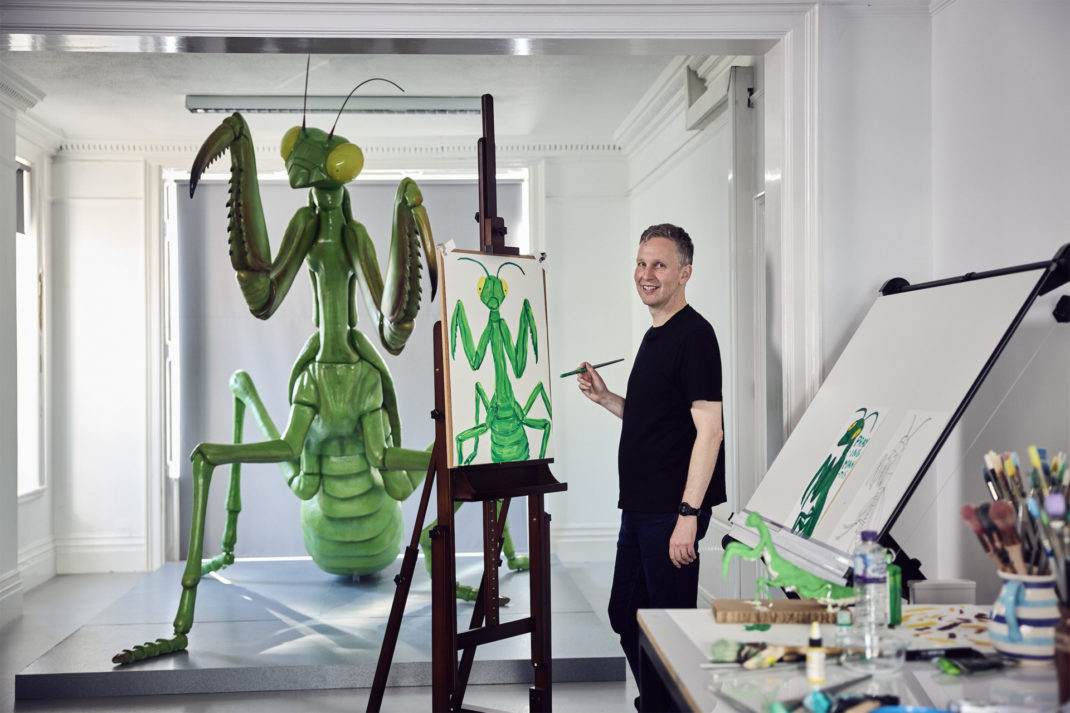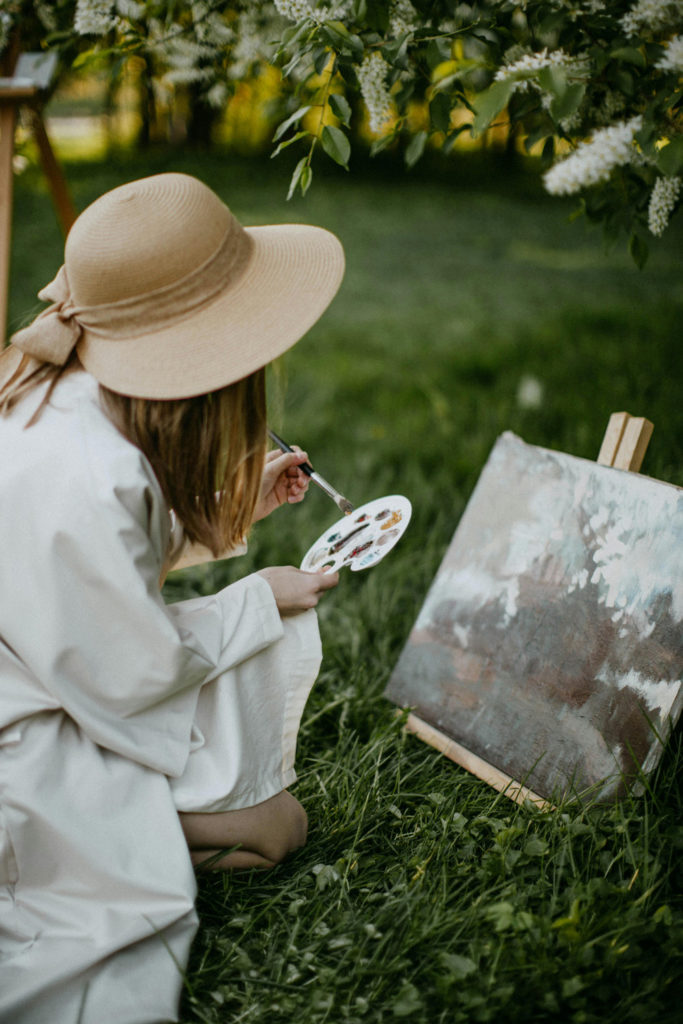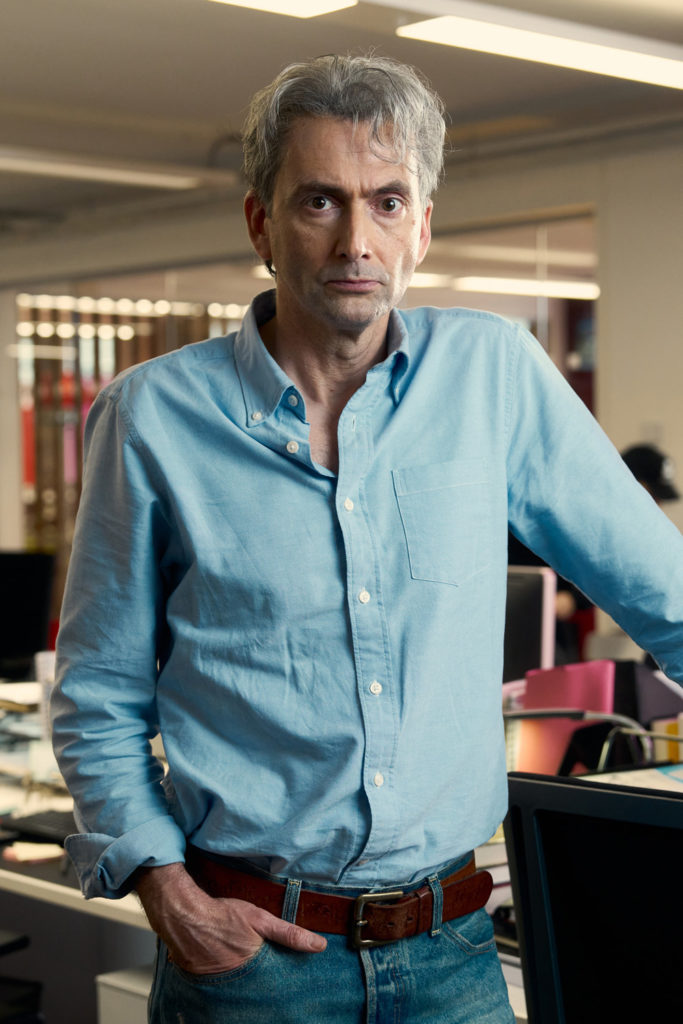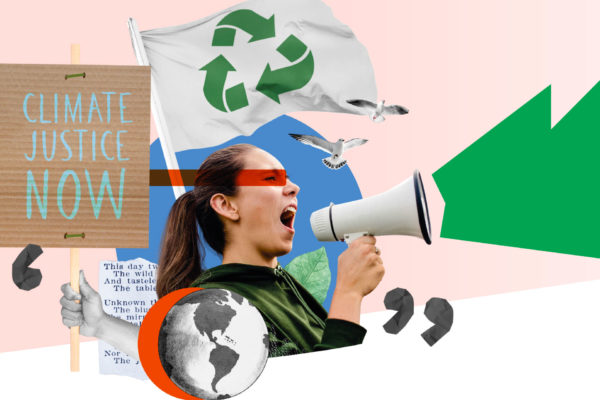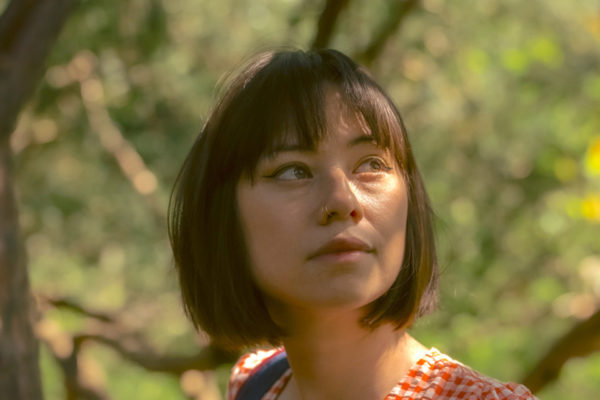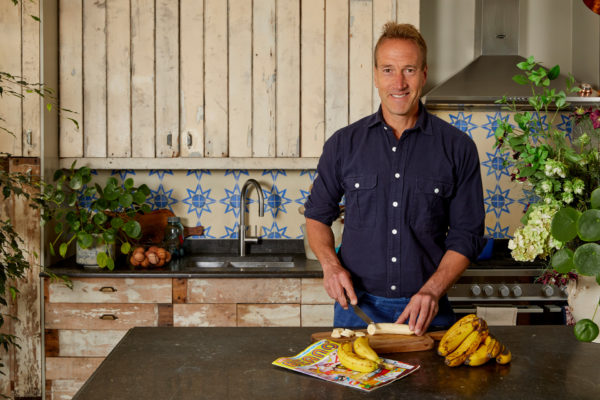Meet Phoebe Tickell, A Moral Imagination Activist
By
2 years ago
Think much bigger
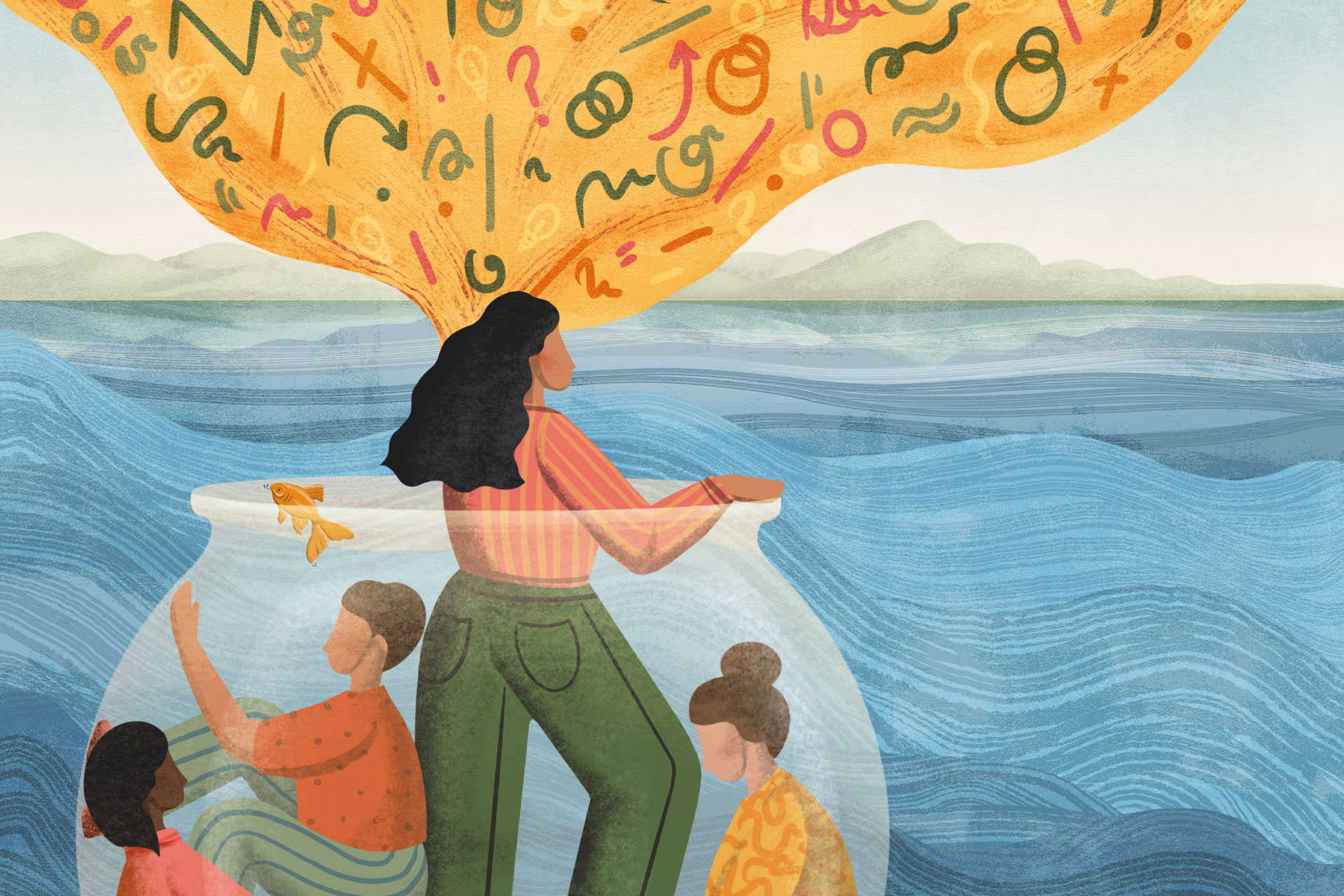
Phoebe Tickell wants to release us from our goldfish bowl mindsets into that of the vast and endless sea perspective beyond. It’s all about freeing our imaginations – but how did she expand her own? asks Lucy Cleland, as she meets the moral imagination activist.
Interview With Phoebe Tickell, Moral Imagination Activist
To sleep, perchance to dream.’ If Hamlet’s desire was to find dreams only in the afterlife, he won’t find much truck with Phoebe Tickell. For Phoebe brings the starstuff of dreams into her professional vernacular when working with everyone from corporations to governments as a Moral Imagination Activist. Yes, you may well ask…
Moral imagination, ‘imagination on behalf of the welfare of the whole’ (as Phoebe describes it), is not a new concept. It traces its roots back as far as Plato, Virgil and Dante, popping up from time to time over the centuries in the works of Edmund Burke, Jane Austen, George Eliot and Toni Morrison. But it’s never been a job description until now, as far as I know (and can we add it to all school careers departments, please). But then the world’s never been more in need of moral imaginationists and moral imagination activists to help us envision a better future.
Which is now Phoebe’s career and her life force. Even her tone is lyrical as she describes her journey to the position she now holds, shuffling off – as she feels she was able to – the mechanistic, hierarchical system of industrialised study and work to find herself beautifully attached by gossamer threads to a world of imagination – and its possibilities for cracking open states of evolution and emergence. ‘Moral imagination is a muscle that everyone has. It’s just that it’s not worked out as much, and there’s no time or space given to it at school or work,’ she says.
Phoebe’s childhood and studying experiences provide clues as to how she exercised hers, though it was not always easy, she admits. ‘I was always driven by a deep curiosity for the world and a passion for wanting to make things better,’ says Phoebe, who is half-English and half-Hungarian. Spending her summer holidays in Hungary, with no television nor internet, it was a world of fantasy and imagination that Phoebe constructed with her sister to stave off the endless boredom. ‘The entertainment industry provides us with non-stop 24-hour digitally administered entertainment – but not enchantment,’ wrote Phoebe in her 2020 Moral Imagination Manifesto. Enchantment is Phoebe’s wheelhouse.
When she left her state primary school in west London to enter the rigorous and demanding independent St Paul’s Girls’ School, the contrast between her two worlds grew greater: ‘I was moving between post-socialist Hungary and capitalist, competitive London, and I was seeing that different worlds are possible, and are happening at once – there’s not even a word for “posh” in Hungarian,’ she says, wryly.
At St Paul’s, she spent as much time in the art wing as the science block, until – inevitably – she had to choose one. The system pulled her towards science, because, the voices said, ‘you’ll never get a job in the arts and you can always come back to it’.
So it was off to Cambridge, which she naively imagined to be like Hogwarts, to be trained as a ‘wizard of science’. The truth was a little more reductive. ‘I had chosen natural sciences because I was in love with the world and wanted an intimate understanding of how life works and to grow as a scientist,’ says Phoebe, but the way the course was taught as 12 hours of lectures, 18 hours of lab time and three essays a week left no time for deeper thinking. ‘I felt really imprisoned and like I was being hammered with information. I took the ecology module and – rather than an immersion in life, going outside and being in nature – it was bringing dead animals into a lab and dissecting them. It felt like a death culture not a life one.’ Phoebe’s imagination muscle was slowly being weakened and her spirit dampened.
Despite this Phoebe was rewarded with a First Class Degree, but it was travelling to Asia after Cambridge and immersing herself in Eastern spirituality that allowed her to begin to work through what had felt so wrong about the approach to learning and science. In the monasteries of Thailand, she found Buddhism and learned to meditate for three hours a day; she did six weeks training in a Thai boxing bootcamp; she discovered the writings of Indian philosopher Jiddu Krishnamurti and Ivan Illich. She gradually shuffled off her perceived shame of not fitting in.
Returning to London, she got a job at Imperial College and found herself back in the lab. But it was clear once more that science performed this way was not going to make Phoebe tick. By saying yes to some opportunities, and no to others, including a fully funded PhD in marine biology at the Scripps Institute in San Diego, studying by the sea (‘I had a lot of grief walking away from that’ – but she was clear that she wanted not to study the ocean, but to be in the ocean, i.e. to be in life, not in the lab) she forged her own path. This included joining a friend’s business in Mumbai, designing five-day transformative learning camps for kids and a stint working on a Holistic Science Masters at Devon’s alternative Schumacher College – ‘a sort of eco-hippie Oxford college’. Then, in 2021, aged 29, she founded Moral Imaginations. This was a way of pulling together all her deep learnings and experience to drive her mission of ‘getting us out of the fish tank’, and ‘into the vast and endless sea’, i.e. to challenge our indoctrinated ways of thinking through imagination – and therefore create solutions for a better future.
‘In the tank,’ she explains to me, ‘we think the water is low oxygen, there are not enough nutrients, and there’s no space for imagination, but instead scarcity and competition. But out there, there’s this vast and endless sea. That’s what my work is all about: we think we have resource problems, but actually we have imagination problems – because everything we need is here. We just need to get out of the tank.’
‘How?’ I gasp, just like one of those goldfish. ‘With imagination,’ she smiles. ‘I believe that every human has a deep sense of what they are here to do. And what they need is the permission, the trust, the support, the growth, to really live that out as a creative, intelligent, flourishing human, and unlearn industrial, mechanistic ways of thinking.’ The moral part is important because, ‘imagination is unbiased. It both creates new medicines that saves billions of people’s lives, but also nuclear weapons and wars.’ This is about imagination with people and planet at the heart of it.
Putting this thinking into practical, workable form is what Moral Imaginations is all about. Take Phoebe’s work with Camden Council. ‘We’ve just finished phase one of a big project,’ she explains. Phoebe says she worked together with the council to develop an eight-week programme to help with issues around the workforce and psychological safety. ‘They loved the idea of a moral imagination activist and trainer working with their council officers, because imagination flourishes and increases psychological safety, because when you imagine together, you share vulnerability, it creates trust, and then it’s a kind of positive feedback loop.’
She and her team recruited 32 council officers from across every council department, from early years to the job centre, from children’s services to the Camden football team – a huge mix of people to take part in workshops, exercises, framework teaching, live sessions, content toolkits.
A starting point was to play with ‘what ifs’: ‘what if we put wellbeing into the heart of being employed at Camden’; ‘what if staff went on imagination sabbaticals to develop ideas for projects’; ‘what if there was less division between staff and community’; were just some of the questions generated by staff themselves during the programme.
The team also trains the leadership, embedding moral imagination into the infrastructure of the council, which centres around their three pillars – considering how future generations can be represented; how the rights of nature can be integrated; how they bring the perspective of ancestors and historical inequity into decision-making.
You can just taste the glorious tinge of possibility when you are freed up and held safely to be able to explore those questions and what might result from them – the potential for systemic change.
And this is what, ultimately, is needed, believes Phoebe, if we are to have a hope of retelling the story we’ve been told – the one of scarcity and competition to another of nature-rich flourishing for all. Is it time for us all to dare to dream?
moralimaginations.com; illustration by Lucy Rose Illustration.

